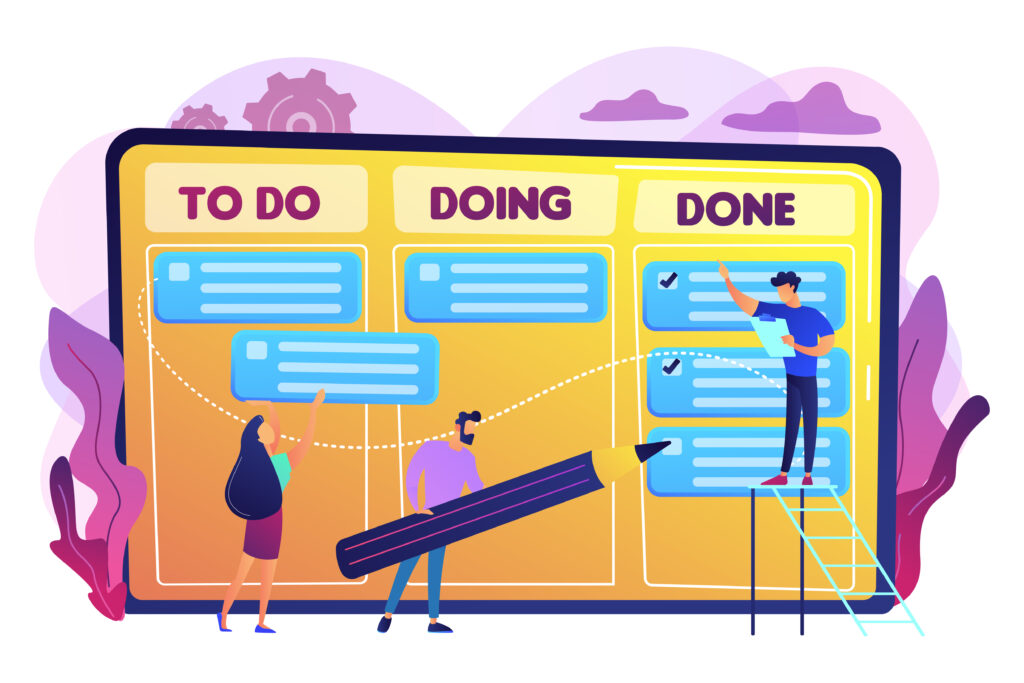
From sundials to modern-day digital calendars, the quest to maximize our days has been ongoing. In today’s fast-paced society, effective time management is more critical than ever.
Whether you’re juggling work, school, or personal commitments, mastering this art can significantly impact your productivity and overall well-being. Join us as we explore practical strategies and tips to help you make the most of every minute in your day.
Time Management
Importance
Effective time management is crucial for success as it allows individuals to prioritize tasks and focus on what matters most. By managing their time effectively, people can accomplish more in a shorter period, leading to increased productivity. Developing and enhancing time management skills is essential because it helps individuals make the most of each day.
Proper time management enables individuals to allocate their time wisely, ensuring that important tasks are completed efficiently. For example, by creating a daily schedule, one can plan out activities based on their significance and deadlines. This approach helps in avoiding procrastination and ensures that there is enough time dedicated to essential responsibilities throughout the day.

Enhancing one’s ability to manage time effectively involves setting goals, prioritizing tasks based on importance and urgency, breaking down larger projects into smaller steps, and allocating specific blocks of time for different activities. By mastering these strategies, individuals can maximize their productivity and achieve a better work-life balance.
Defining Time Management
Core Principles
Time management is crucial in helping individuals maximize their limited time efficiently. It enables people to balance work and personal life effectively. Without proper time management, stress can increase, leading to missed opportunities.
Setting clear goals is a fundamental aspect of time management. By defining objectives, individuals can focus on tasks that align with their goals. Prioritizing activities based on importance and urgency ensures that critical tasks are completed first. Efficiently allocating resources such as time and energy enhances productivity.
Significance
Effective time management involves creating a roadmap for daily activities by setting achievable targets. For example, breaking down larger projects into smaller tasks makes them more manageable and less overwhelming. By organizing tasks according to priority levels, individuals can ensure that essential assignments are completed promptly.
Moreover, time management allows for the identification of distractions that hinder productivity. By recognizing these interruptions—like social media or unnecessary meetings—individuals can eliminate or minimize them to enhance focus and efficiency.
Benefits of Effective Time Management
Stress Relief
Time management is crucial as it allows individuals to achieve more in less time. Being organized and focused on priorities are key benefits. This practice not only reduces stress but also fosters personal and professional growth. For instance, when people manage their time effectively, they can complete tasks efficiently without feeling overwhelmed.
Effective time management helps individuals avoid last-minute rushes by planning ahead. Allocating specific periods for relaxation and self-care becomes possible with proper time management. By staying on top of schedules, people can dedicate quality time to both work and personal life. Feeling in control of one’s day contributes significantly to reducing stress levels.
Opportunities
Properly managed time opens up opportunities for individuals to lead a balanced lifestyle. It enables them to set aside moments for themselves amidst busy schedules, promoting overall well-being. When people allocate sufficient time for work responsibilities as well as leisure activities, they experience improved productivity and satisfaction in various aspects of life.
Managing time effectively empowers individuals by providing a sense of control over their daily routines. This control translates into reduced anxiety about pending tasks or deadlines, fostering a calmer mindset throughout the day. With better organization skills from effective time management, individuals find themselves better equipped to handle unexpected challenges that may arise.
Assessing Time Usage
Effective time management is crucial for personal growth and career success. Conducting a time audit is a valuable tool to assess how time is currently being utilized. By tracking activities throughout the day, individuals can identify areas where time could be better spent.

A time audit helps uncover patterns of wasted or unproductive time. For instance, spending excessive hours on social media or engaging in tasks that do not align with personal or professional goals can be identified through this process. Recognizing these inefficiencies allows individuals to make informed decisions on how to allocate their time more effectively.
Analyzing the results of a time audit offers valuable insights for improving time management skills. It provides a clear picture of where time is being invested and highlights areas that require adjustments. By understanding how each hour is spent, individuals can prioritize tasks, eliminate unnecessary activities, and focus on endeavors that contribute to personal development and career advancement.
- Conducting a time audit unveils hidden patterns in daily routines.
- Identifying wasters through a time audit enables targeted improvements in managing one’s schedule.
- Analyzing data from a time audit empowers individuals to make strategic changes for optimizing their use of time.
Recognizing and eliminating activities that consume precious hours without yielding significant benefits are essential aspects of effective time management. Through the process of identifying wasters, individuals can streamline their schedules and enhance productivity levels.
For example, mindless scrolling through social media feeds or engaging in prolonged discussions about non-work-related topics are common examples of activities that drain valuable time without adding value to personal growth or professional development. By pinpointing these wasters during a thorough review of daily activities, individuals can reclaim lost time for more meaningful pursuits.
By minimizing or eliminating identified wasters from one’s routine based on insights gained from conducting a comprehensive review, individuals create space for productive endeavors that align with their goals and aspirations. This proactive approach ensures that every moment is used purposefully towards achieving desired outcomes.
- Eliminating identified wasters optimizes available hours for meaningful tasks.
- Pinpointing specific unproductive habits enhances overall efficiency in managing one’s schedule.
- Reclaiming lost moments by addressing identified wasters facilitates progress towards personal objectives.
Strategies for Improvement
Prioritizing Tasks
Identifying time wasters is crucial in improving time management. Activities like excessive social media use and procrastination can hinder productivity. By eliminating or reducing these distractions, individuals can focus on tasks that add value to their goals.

Common techniques such as the ABC method help in determining task priorities. By focusing on high-priority activities first, individuals ensure that essential tasks are completed efficiently. This approach not only boosts productivity but also enhances the overall effectiveness of time utilization.
- Pros:
- Enhances productivity by eliminating time-wasting activities
- Helps prioritize important tasks effectively
- Cons:
- Requires self-discipline to avoid distractions
- Might need adjustments to adapt to different work styles
Avoiding Multi-tasking
Engaging in multiple tasks simultaneously can lead to decreased efficiency and increased errors. Instead of multitasking, focusing on one task at a time allows individuals to concentrate better and produce higher-quality work within a shorter timeframe.
The Eisenhower Matrix is a valuable organizational tool that helps individuals categorize tasks based on urgency and importance into four quadrants. By allocating time appropriately according to this matrix, individuals can ensure that each task receives the necessary attention based on its significance.
- Start by listing all pending tasks.
- Categorize each task into urgent/important, not urgent/important, urgent/not important, or not urgent/not important.
- Allocate time slots based on these categories.
- Review and adjust the schedule regularly for optimal results.
Enhancing Focus and Productivity
Minimizing Distractions
Implementing organizational techniques like creating to-do lists and using calendars can significantly improve time management. By breaking down tasks into smaller, manageable steps, individuals can enhance their productivity by focusing on one task at a time. Organizing both physical and digital spaces is essential to reduce clutter, leading to saved time that would otherwise be spent searching for misplaced items or files.
When distractions are minimized by turning off notifications and other interruptions, focus is sharpened on the task at hand. Creating a dedicated workspace free from disruptions allows individuals to concentrate better, ultimately improving productivity levels. Setting boundaries with colleagues or family members also plays a crucial role in reducing distractions during work hours.
- Pros:
- Enhanced focus
- Improved productivity
- Cons:
- Requires consistent effort
- May need adjustments based on individual preferences
Using Apps
Time Chunking
Time chunking involves dividing the day into specific blocks of time dedicated to different tasks or activities. This method helps individuals allocate sufficient time for each task while preventing multitasking that could lead to decreased efficiency. Integrating apps designed for time management, such as calendar apps with reminders and scheduling features, can aid in organizing daily routines effectively.
By setting aside uninterrupted periods for focused work without any external disturbances like notifications or phone calls, individuals can boost their concentration levels significantly. Establishing clear boundaries with coworkers or family members regarding availability during certain times of the day ensures minimal interruptions during critical work sessions.
- Steps:
- Create a detailed schedule outlining tasks.
- Allocate specific time slots for each activity.
- Utilize apps like Trello or Google Calendar for organization.
- Guidance:
- Prioritize important tasks first.
- Set realistic goals within each time block.
Setting Goals and Priorities
Establishing Goals

Time chunking, a method of setting goals, involves grouping similar tasks during specific time blocks. This technique enhances efficiency by reducing the need to switch between different activities frequently. By allocating focused time slots for specific tasks, individuals can significantly improve their overall productivity. For example, dedicating an hour in the morning solely for replying to emails helps avoid distractions from other responsibilities.
Implementing plans through clear goal-setting provides direction and purpose in managing time effectively. Clear goals assist in prioritizing tasks and allocating resources appropriately based on their importance and urgency. Well-defined objectives act as motivators that help individuals stay on track with their time management strategies. For instance, setting a goal to complete a project report by Friday afternoon encourages better task organization throughout the week.
Mastering Time Management at Work
Delegating tasks is a crucial aspect. Developing action plans outlines the necessary steps to achieve goals efficiently. Effective planning ensures optimal allocation of resources, and implementing these plans helps individuals stay organized and focused on their objectives.
Delegating tasks to others can significantly impact balancing obligations at work. By assigning tasks based on team members’ strengths, efficiency improves as responsibilities are distributed effectively. This delegation process allows individuals to focus more on high-priority activities while ensuring that all tasks are completed in a timely manner.
Balancing obligations through task delegation also enhances teamwork within an organization. When each team member is assigned tasks according to their expertise, the workflow becomes smoother and more productive. For example, if a project requires both creative input and analytical skills, assigning these specific aspects to team members with corresponding strengths can lead to better outcomes.
Coping with Stress
Systematic Approach
Balancing personal and professional obligations is vital for time management. Prioritizing self-care, setting boundaries, and knowing when to say no are essential strategies to prevent burnout. For instance, scheduling regular breaks during the workday can help maintain focus and productivity.
Finding a balance between work responsibilities, family commitments, and personal time contributes significantly to overall well-being. By allocating specific times for work tasks, family activities, and self-care routines, individuals can reduce stress levels and enhance their quality of life. Effective time management involves creating a structured plan that accommodates all aspects of one’s life.
A systematic approach in managing time ensures consistency in daily routines. Establishing clear priorities and following set processes enhances efficiency by reducing the need for constant decision-making. For example, creating a daily schedule or utilizing productivity tools helps individuals stay organized and focused on important tasks without feeling overwhelmed by numerous choices.
Decision Making
Adopting a systematic method in time management fosters discipline in adhering to schedules and deadlines consistently. By incorporating established routines into daily practices, individuals can streamline their workflow effectively while minimizing distractions. This approach not only saves time but also reduces stress associated with last-minute rushes or missed deadlines.
Having a structured system allows individuals to allocate sufficient time for each task based on its priority level. This practice minimizes decision fatigue as it eliminates the need to repeatedly decide what task should come next or how long each activity should take. With a clear plan in place, individuals can navigate through their day more smoothly while maintaining focus on completing essential tasks promptly.
Summary
Managing your time effectively is crucial for achieving your goals and reducing stress. By defining what time management means to you and understanding its benefits, you can assess how you currently use your time and implement strategies for improvement. Enhancing your focus, setting clear goals and priorities, and mastering time management at work are all essential steps in taking control of your schedule.
Remember, time is a valuable resource that you can never get back. So, make the most of it by implementing the tips and techniques discussed in this article. By mastering time management, you can enhance your productivity, reduce stress levels, and ultimately achieve greater success in both your personal and professional life.
Related Article:
The following article may contain the author’s opinions and interpretations of the subject matter. Any of the products, services, or platforms mentioned is not sponsored or affiliated.
Featured Image by freepik
